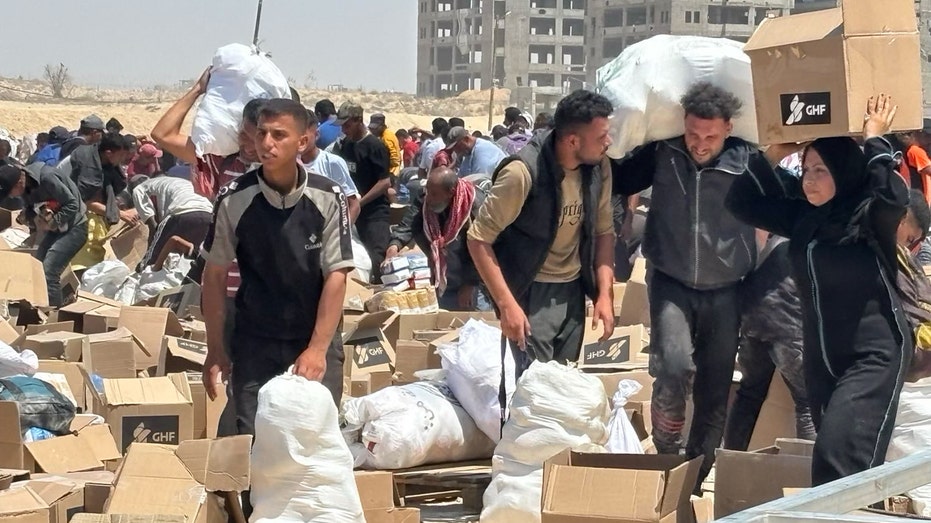Israeli Official Accuses Hamas of Spreading Fake News to Sabotage Trump-Backed Aid Organization
Israeli officials accuse Hamas of sabotaging aid efforts to maintain control in Gaza.

The Gaza Humanitarian Foundation (GHF), backed by both the United States and Israel, has found itself at the center of an intense international debate as it continues its efforts to deliver food and vital supplies in Gaza. Since launching its operations last month, the organization has faced a wave of criticism, logistical hurdles, and violence around its aid distribution sites. Recent reports confirmed that Israeli Defense Forces (IDF) troops shot individuals they described as "suspects" after orders to disperse near one such site were ignored, further escalating tensions and raising concerns over civilian safety.
Tensions between aid agencies have flared, with the United Nations voicing sharp objections to GHF’s presence in Gaza. U.N. Under-Secretary-General for Humanitarian Affairs, Tom Fletcher, has repeatedly urged that his agency should oversee all humanitarian operations in the region, citing the risk of fragmentation and inefficiency. Israeli officials, however, argue that GHF’s approach prevents Hamas from commandeering the aid. According to Oren Marmorstein, spokesperson for Israel's Ministry of Foreign Affairs, Hamas is "doing everything that it can to sabotage this effort," expressing fears that the direct delivery of assistance could undermine the group’s hold over the population of Gaza. Marmorstein went so far as to accuse Hamas of disseminating misinformation in an attempt to discredit the Foundation’s operations.
Amid these disputes, the situation in Gaza has grown more volatile. This week, the United States exercised its veto power at the U.N. Security Council, blocking a resolution that sought an immediate ceasefire, the return of all hostages, and unrestricted humanitarian access. U.S. officials criticized the resolution for ignoring what they described as the "disastrous shortcomings" of previous aid efforts, which, according to Washington, had allowed Hamas to appropriate resources intended for civilians. Dorothy Shea, U.S. Chargé d’Affaires, stressed the need for a new approach, urging other nations to support the GHF in delivering aid "without it being diverted by Hamas."
Israeli diplomats have also voiced frustration with the United Nations’ handling of the crisis, particularly over the removal of GHF-affiliated non-governmental organizations from the main aid coordination database. Addressing the Security Council, Israeli Ambassador Danny Danon accused the U.N. of "mafia-like" tactics and "the gravest violation of its own principles," claiming that humanitarian groups were being shut out without transparent or fair process.
Following several days of unrest and violence around its facilities, the GHF temporarily suspended food distribution earlier this week to reinforce security measures. The Foundation initially planned to resume operations on Thursday, but delays due to maintenance postponed the reopening. Aid deliveries eventually resumed later in the day, as hundreds of Palestinians gathered in anticipation of much-needed supplies. The resumption comes as debate continues over how best to ensure that humanitarian relief reaches Gaza’s most vulnerable — without exacerbating political divides or enabling militant groups.




